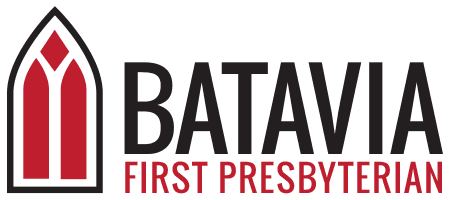Weekly Bible Devotional
“Come, Follow Me Home: Spiritual Practices”
March 27, 2022
Scripture: Matthew 6:1-18
“Beware of practicing your piety before others in order to be seen by them; for then you have no reward from your Father in heaven.
2 “So whenever you give alms, do not sound a trumpet before you, as the hypocrites do in the synagogues and in the streets, so that they may be praised by others. Truly I tell you, they have received their reward. 3 But when you give alms, do not let your left hand know what your right hand is doing, 4 so that your alms may be done in secret; and your Father who sees in secret will reward you.
5 “And whenever you pray, do not be like the hypocrites; for they love to stand and pray in the synagogues and at the street corners, so that they may be seen by others. Truly I tell you, they have received their reward. 6 But whenever you pray, go into your room and shut the door and pray to your Father who is in secret; and your Father who sees in secret will reward you.
7 “When you are praying, do not heap up empty phrases as the Gentiles do; for they think that they will be heard because of their many words. 8 Do not be like them, for your Father knows what you need before you ask him.
9 “Pray then in this way:
Our Father in heaven,
hallowed be your name.
10 Your kingdom come.
Your will be done,
on earth as it is in heaven.
11 Give us this day our daily bread.
12 And forgive us our debts,
as we also have forgiven our debtors.
13 And do not bring us to the time of trial,
but rescue us from the evil one.
14 For if you forgive others their trespasses, your heavenly Father will also forgive you; 15 but if you do not forgive others, neither will your Father forgive your trespasses.
16 “And whenever you fast, do not look dismal, like the hypocrites, for they disfigure their faces so as to show others that they are fasting. Truly I tell you, they have received their reward. 17 But when you fast, put oil on your head and wash your face, 18 so that your fasting may be seen not by others but by your Father who is in secret; and your Father who sees in secret will reward you.
Notes on the Text:
Our scripture for this week is a continuation of the Sermon on the Mount. The topic which Jesus teaches about is prayer. As he continues to reverse the expectations of the people about the Kingdom of God, Jesus challenges the common practices of his day around worship, public prayer, and almsgiving.
In order to appreciate what Jesus was trying to say, we have to take a look at the practice of patronage or beneficence in the ancient Roman and Jewish worlds. A great resource about this is the work of Bruce Winter in his book Seek the Welfare of the City. At the time of Jesus, public works, public buildings, public baths, city festivals, feasts, and games were funded by wealthy individuals. As a result, the people of the ancient cities would praise the benefactors in public with great praise that would show their appreciation. Even the emperor of the Roman Empire was part of this system of benefaction, giving of his own wealth in order to show off his power and generosity. Benefactors also supported individuals by providing them income and goods. In return, it was the duty of the recipient of such generosity to praise his benefactor in public, writing poems or essays about his generosity or even waking him up in the morning to a hymn of praise. A second level of individual benefaction was the support of widows. A third level of benefaction was the support of beggars and the homeless. All these levels required public praise and recognition.
Against this backdrop, we can appreciate what Jesus was saying to the people. The system that promoted the power and egos of individuals and their social status had no place in the Kingdom of God. That system separated people from one another by class and social power. In the Kingdom of God, Jesus proclaimed a different vision where doing God’s work in the world is the motivation without the rewards that appeal to our egos and social systems that oppress and abuse the needy.
The main remedy which Jesus offers to the social ills of the systems of domination in our world is the practice of spirituality in secret. This is not about being modest in prayer or not talking about one’s faith in public. It is about letting go of the needs of our egos (both socially and individually). This is also rooted in the fact that God’s action in the world and in us is often hidden and subtle. God is not like the benefactors of ancient times (or of our time). God works in hidden ways. Jesus’ actions and teachings followed the same pattern. He did not seek social status or power according to the ways of the empires of his time. In fact, he was willing to face death instead of using the means of violence and control to spread his message.
In a way the instructions about giving, prayer, and fasting echo Jesus’ own experience of spiritual formation in the wilderness! When he was being tempted by the devil, he had to face the same pressures of power, control, security, and the need for survival. He resisted these temptations because his mission as an agent of the Kingdom of God was to show the futility of the values of domination of the other kingdoms. The followers of Jesus are invited to follow in his footsteps to let go of the pressures and fears of the ego.
Another important facet of Jesus’ teaching about prayer is the text of the Lord’s Prayer. It is very simple and earthy. It does not have flowery language. It is focused on the basics of life and the priorities of the Kingdom of God: God as the center of our being, God as the only king/ruler in our world, the daily provision of bread for all people, the practice of forgiveness of debt as commanded by God to the people of Israel in the Sabbatical year (every seven years) and the Jubilee year (every 50 years), and protection from evil.
For Reflection:
Even though we do not have the system of Roman patronage, we have other ways in our world today to inflate our egos and to put or keep others in their place. The pressures of our world are just as real today when it comes to control, power, success, and security. We see this on public display in Russia’s invasion of Ukraine where a dictator wants to gain power and control as he sees himself to be a savior and a great leader.
The values of the Kingdom of God challenge us to follow an alternative path, a secret path where we are shaped by the Spirit of God. The path of the Kingdom must remain a secret place where the masks and pressures of the world fall off and we are free to be our true selves; people who are created in the image of God. One of the hardest things in life is getting in touch with our true self. By true self, I don’t mean here what popular culture means when they say, “Be true to yourself,” because that could mean being true to what I like or dislike. The true self is our divine essence where we have unconditional love and a deep sense of connection to God and to others. The pressures of daily life and our needs for approval and for fitting in lead us to reject parts of ourselves that we deem socially unacceptable. We also learn to live on the surface of life avoiding the deeper ways of the heart. Even when it comes to our spiritual life, we can stay on the surface.
Our inner life is what grounds us in the vision and mission of the Kingdom of God. In order to subvert the pressures and ways of the world, we must allow the power of God to grow deep within us. By asking the people to give, pray, and fast in secret, Jesus was asking his community of followers to dismantle a social structure that fed only people’s egos and which kept the status quo of injustice intact. Jesus was challenging his followers to allow their giving to come from the heart and not out of an egotistical need for recognition. In his book, The Secret Message of Jesus, Brian McLaren writes that “The kingdom of God, then is a revolutionary, countercultural movement – proclaiming a ceaseless rebellion against the tyrannical trinity of money, sex, and power. Its citizens resist the occupation of this invisible Caesar through three categories of spiritual practice. First, they practice a liberating generosity toward the poor to dethrone greed and topple the regime of money. Second, they practice a kind of prayer that is a defiant act of resistance against the prideful pursuit of power, pursuing forgiveness and reconciliation, not retaliation and revenge. Finally, they practice fasting to revolt against the dominating impulses of physical gratification — so that the sex drive and other physical appetites will not become our slave drivers. And all of these are practiced covertly, in secret, so they aren’t corrupted into an external show ‘as the hypocrites do.’ ”
The Lord’s Prayer with its simplicity could also be a strong reminder for us about the values and priorities of the Kingdom of God. When we recite it, we are reminded that God is the one who is to be worshipped and adored and not the gods of success, popularity, and esteem. We are reminded that daily bread is all we need and not all the consumerist dreams of more material possession that promise us happiness. We are reminded of the importance of forgiveness in our daily dealings.
What are the traps of the ego in our world today? How do you struggle with such traps? What helps you go inward to reconnect with the source of all goodness in your heart? How does the Lord’s Prayer help you to remember to live by the priorities of the Kingdom of God?
Allow by Danna Faulds
There is no controlling life.
Try corralling a lightning bolt,
containing a tornado. Dam a
stream and it will create a new
channel. Resist, and the tide
will sweep you off your feet.
Allow, and grace will carry
you to higher ground. The only
safety lies in letting it all in –
the wild and the weak; fear,
fantasies, failures and success.
When loss rips off the doors of
the heart, or sadness veils your
vision with despair, practice
becomes simply bearing the truth.
In the choice to let go of your
known way of being, the whole
world is revealed to your new eyes.


